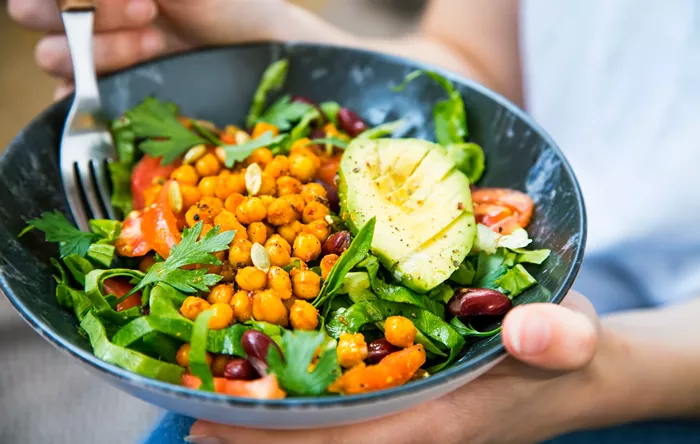If you’re in midlife and battling hot flashes, your plate may hold more power than you think. A new study has found that postmenopausal women who adopted a low-fat vegan diet with daily soybeans saw their moderate to severe hot flashes drop by a stunning 90%—all within just 12 weeks.
Even better? These women also lost weight—an average of 8 pounds—while the control group, who didn’t change their diet, lost less than one.
What Was the Diet—and What Were the Results?
Researchers followed 84 women who had at least two moderate-to-severe hot flashes per day. Half of them were asked to follow a plant-based, low-fat vegan diet that included half a cup of cooked soybeans daily. The others continued with their usual omnivorous eating habits.
The results were dramatic:
The vegan group’s hot flashes dropped from five per day to less than one.
The control group saw only a 34% reduction.
Weight loss was significantly greater in the plant-based group.
Even when participants ate highly processed vegan foods—like frozen veggie pizzas or packaged plant-based meats—they still saw significant benefits. The key factor seemed to be avoiding animal products, not necessarily avoiding processed foods.
What’s the Science Behind It?
So, how exactly does a vegan diet help? Experts say the answer may lie in several overlapping benefits:
Weight loss, which is already known to reduce hot flashes.
Fiber from plant foods supports a healthier gut, leading to positive metabolic changes.
Soy isoflavones, plant compounds with estrogen-like properties, may directly ease hot flashes.
Reduced intake of AGEs (advanced glycation end-products)—toxic compounds that build up in the body with age and are linked to hot flashes. These are found more in animal products than plant foods.
Dr. Hana Kahleova, lead author and endocrinologist, believes it’s the full package: “This diet improves quality of life by easing hot flashes and promoting overall health.”
Do You Have to Go 100% Vegan to See Benefits?
The study focused on a fully vegan approach, but experts say leaning into more plant-based meals can still be helpful. Dr. Stephanie Faubion, an internal medicine doctor and menopause specialist at the Mayo Clinic, wasn’t involved in the study but supports the general direction:
“Even if you’re not ready to go completely vegan, incorporating more plant-based meals is beneficial—for your heart, weight, and possibly for managing menopause symptoms.”
That said, more research is needed before doctors can officially prescribe a “hot-flash diet.” The science is promising, but experts caution against thinking diet alone is a silver bullet.
So, Should You Try It?
If hot flashes are disrupting your sleep or daily life, you might consider giving plant-based eating a try—especially since it comes with no downside and plenty of overall health perks.
Dr. Karen Adams, a menopause specialist at Stanford, emphasizes that this diet may reduce inflammation and lower the risk of chronic illness. Still, she adds, “Don’t expect miracles overnight. Diet is just one part of the puzzle.”
In short: a vegan diet may not be a magic fix—but it’s definitely a healthy step in the right direction.
Read more:
- Does Vitamin E Help Prevent Hot Flashes?[Revealed!]
- Does Evening Primrose Help With Hot Flashes?
- Can Magnesium Help With Hot Flashes?


